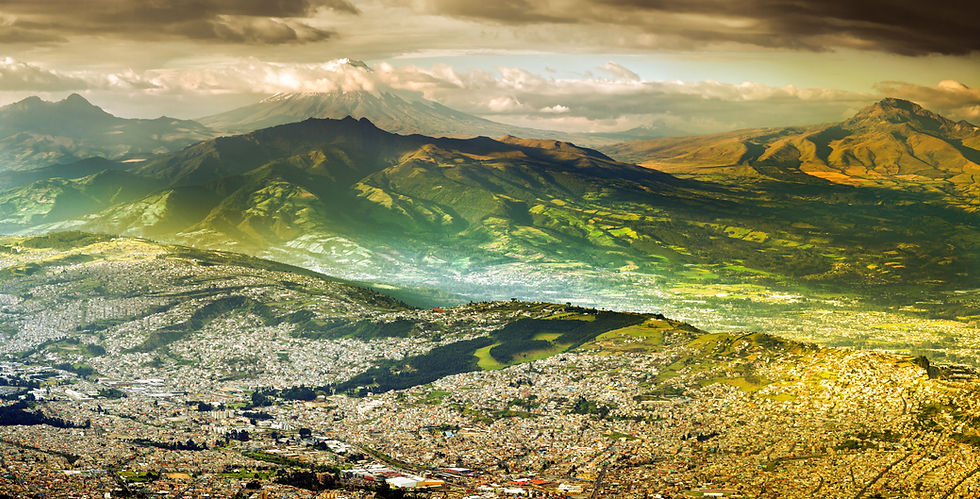A New Perspective: Bridge The Gap of Science & Humanities
- Victor Sauca

- May 20, 2021
- 3 min read
Updated: Apr 18, 2024
visit underlined statements in blue to read additional sources

I am Victor Sauca, 29 years old, I was born into an Indigenous family that is part of the Saraguro Kichwa people whose traditional homelands are in the southern Ecuadorian Andes.

In 2015 I gained an international studies scholarship from the Ecuadorian government which I took advantage of to pursue a degree in First Nations and Indigenous Studies at the University of British Columbia - UBC, Vancouver, Canada.

While at UBC I became much more interested in connecting with my people’s culture, heritage and territory at deeper intellectual, scientific, experiential and spiritual levels. After graduating at UBC, before applying for a master’s degree, I decided to “graduate” in my people’s traditional sciences or at least dedicate to it the same amount of time and discipline I dedicated to my undergraduate studies. I am in that process now and working to find ways to give back the generosity I received until now. One of those ways is to bridge the traditional with the contemporary at the scientific dimension contributing with those efforts to the accomplishment of a more conscious and empowered kind of human being.

Currently, I hold the Research Lead position as a part-time worker for Native Land Digital. Also, I am the head of the Youths Department of a local organization of which my community Tuncarta is part of.

My Community
The community or village where I live is called Tuncarta and is part of the Saraguro people and territory. Like most Indigenous villages/communities here, it is self-sufficient, and dependency on the local and national government institutions remains at a minimum level.

The majority of projects undertaken for the well-being of our community have been self-managed and financed with most of the money coming from the pockets of the same community members or co-financed with the help of external organizations. The projects that have taken much effort in the last decade are tap water and crop irrigation systems. Yet, during the dry seasons, the incapacity of the irrigation system becomes apparent and discomfort and conflicts arise since agriculture and livestock are among the main income sources locally.











Even though the water springs and rivers present in my community territory have been preserved from heavy pollution and drying up, it has changed in the last few years. It is a recurring pattern across the Saraguro territory and the causes and dangers range from the introduction decades ago of non-native plants (such as pine and eucalyptus) that have had negative effects on the local ecology, deforestation of native forests to make pastureland, the growth of small enterprises that rely on water (such as car washing centers) to satisfy the growing demand from diverse sectors, and lately the possibility of great-scale gold mining by transnational corporations in the mountains that surround our villages and are the water source for several towns beyond the Saraguro people’s territory.

My Intentions
My intentions behind this documentary work are to gather diverse and complementary voices and visions around water and the co-dependent relations we as a people have with it. We will use this opportunity to document the current state of those relations from the perspective of the Saraguro community and to make visible the visions and desires we as a people have for our future in the context of our dependency on healthy water and water sources. Beyond our local community, I intend to invite people who care about water and its healthy preservation for the future to be part of and support our visions and work in the appropriate ways they can. I hope to achieve a triangulation of traditional and scientific knowledge in a team (composed of elders, youths, and children) for ongoing research to guide our planning and decision-making processes around water to achieve the future we wish as a people.




Sincerely,
Victor Sauca




Comments